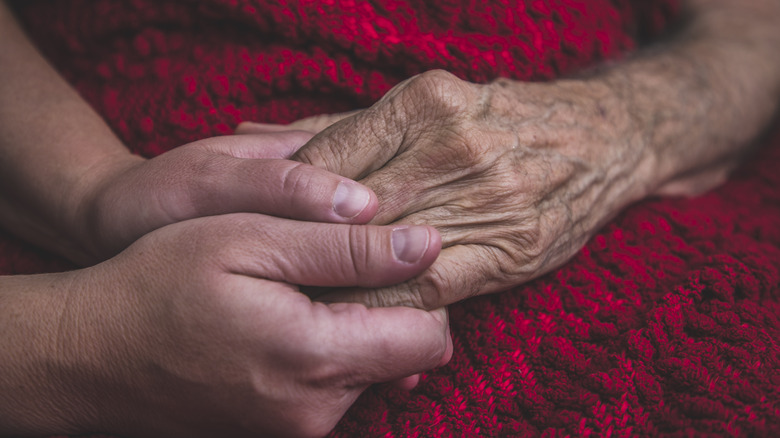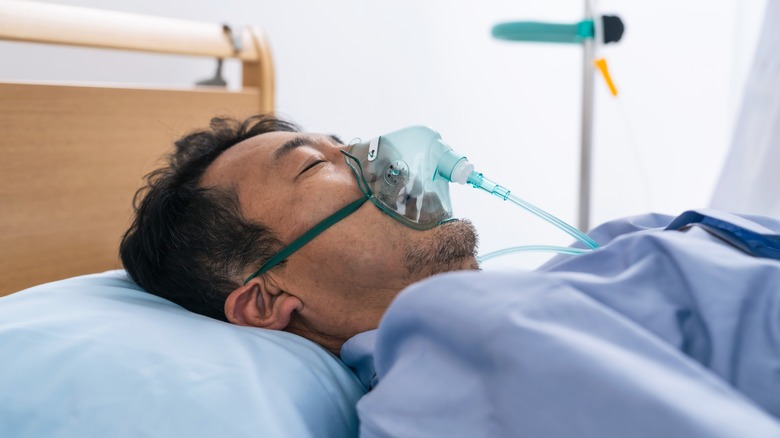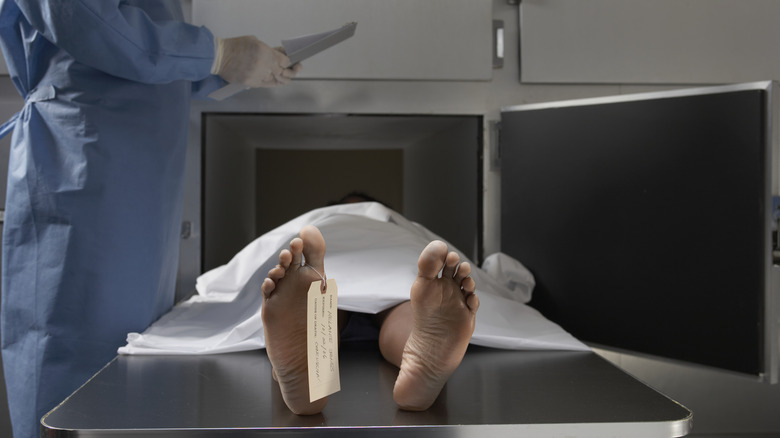Turns Out People Actually Die Twice When The End Comes
The conversation surrounding what happens in the final moments before death is often an uncomfortable one. As living and breathing humans, we don't usually like thinking about death or dying. But this doesn't take away from the fact that death is universal and unavoidable for all living beings.
If you've ever binged on medical dramas like "Grey's Anatomy," "House," and "Scrubs," you've probably seen scenes where someone died of cardiac arrest or drowning and was brought back to life through cardiopulmonary resuscitation (CPR). This is because there are two kinds of death — clinical death and biological death. In essence, this means that we actually die twice when the end comes.
According to an Associate Professor of Medicine and Biomedical Sciences at Bond University, Australia, Christian Moro, "Most commonly, clinical death is a describing term used to describe the cessation of respiration and circulation. No breathing, no regular heartbeat" (via Physiology with Dr. Christian). A person who is clinically dead is not irreversibly dead, which means they can often be revived if the right kind of interventions are used. Even if their heart has stopped beating and their breathing has ceased, someone who is clinically dead can be brought back to life. The second time we die is during brain death, which leads to biological death, according to the American AED CPR Association. About 4-6 minutes into clinical death is when vital parts of your brain begin to shut down.
What happens during brain death?
Brain death is considered an irreversible form of death (per National Health Services U.K.) Even if people are on life support where failing organs are kept alive by modern medical interventions, someone who is brain dead will never regain consciousness, per Better Health Channel.
Brain death occurs when oxygen and blood supply to the brain is cut off and this results in brain tissue dying (per Life Source). Without the proper functioning of your brain, your entire system starts to shut down. Your brain, heart, and other vital organs die from a lack of oxygen, and this results in biological death. Just how soon biological death comes is dependent on a few factors. For example, someone who drowned might have more minutes within which they can be revived because of hypothermia which necessitates less oxygen to the brain. But 11 minutes after clinical death, the brain is usually damaged without any hope of reversal (per American AED CPR Association).
According to the associate investigator in the Cardiovascular Health Across the Lifespan Program at the RI-MUHC in Montreal, Canada, Dr. Sam Shemie (via McGill University Health Center), the second time we die is in fact actual death. "In the end, it comes down to one simple truth: the only organ that we can neither artificially support nor replace is the brain. And when the brain completely stops working, the person is dead," he explained. Despite this, however, there is some controversy globally over when someone can be pronounced dead.
The challenges of classifying brain death
According to Christian Moro (via Physiology with Dr. Christian), the requirements for brain death differ from country to country. Physicians often perform a series of tests to determine if someone is brain dead — shine a light into people's eyes to test for any reaction, pinch their forehead or nose to elicit a reaction, place a plastic tube down their throat to see if they gag, and disconnect them from the ventilator to see if they make any attempt to breathe on their own (per National Health Services U.K.) In more recent times, there are also tests like electroencephalography (EEG) or cerebral angiography (CA), which look at brain activity, that can be done to determine if someone is brain dead.
"If we mandated a brain scan for determining death, the hospitals in many countries wouldn't have the resources or staff to keep up with this requirement for so many patients," shared Moro. This is probably why you're pronounced dead when your respective doctor decides to do so (provided you're in a hospital setting), shared neurologist at Dartmouth College's Geisel School of Medicine in New Hampshire, Dr. James Bernat (via Live Science).
Ultimately, what happens to your body when you die is an area that's still being researched. Modern tools such as life support machines mean that someone who is brain dead can "appear" alive to loved ones. Even though we technically die twice, proper definitions of clinical and biological death are imperative when it comes to giving loved ones closure and in cases when the person who is dying has signed up for organ donation.



